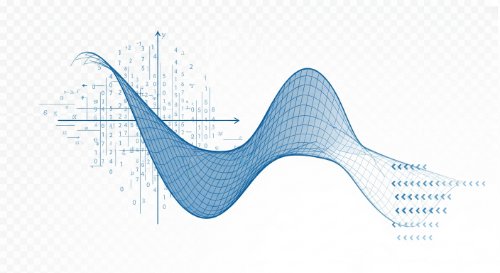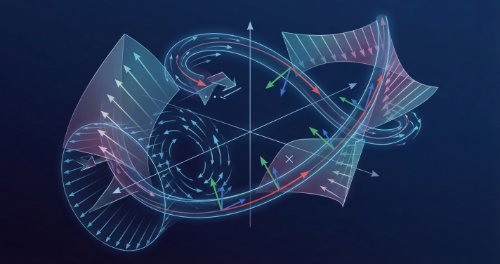Worked examples (1) - Position Vectors | Vector Algebra and Geometry - Vectors (Undergraduate Foundation)
SPONSORED Get Personalized Tutoring NowStruggling with a tough concept or looking to advance your skills? Our expert tutors offer one-to-one guidance tailored to your unique needs.
Get instant support, clear explanations, and practical strategies to master even the most challenging subjects. With flexible scheduling and customized learning plans, success is just a session away.
Book your personalized tutoring today and start achieving your academic goals!
Get Personalized Tutoring NowStruggling with a tough concept or looking to advance your skills? Our expert tutors offer one-to-one guidance tailored to your unique needs.
Get instant support, clear explanations, and practical strategies to master even the most challenging subjects. With flexible scheduling and customized learning plans, success is just a session away.
Book your personalized tutoring today and start achieving your academic goals!
Struggling with a tough concept or looking to advance your skills? Our expert tutors offer one-to-one guidance tailored to your unique needs. Get instant support, clear explanations, and practical strategies to master even the most challenging subjects. With flexible scheduling and customized learning plans, success is just a session away. Book your personalized tutoring today and start achieving your academic goals!

Vector Algebra and Geometry - Vectors (Undergraduate Foundation)
Vectors are the primary tool for describing quantities with both magnitude and direction. This course provides a complete foundation in their algebraic and geometric properties. We move systematically from the basic definition and classification of vectors to the core operations of vector algebra: addition and scalar multiplication. The curriculum then progresses to essential geometric applications, including position vectors, Cartesian components, direction cosines, the division of lines, vector projections, and centroids.
A command of vector algebra is not optional; it is essential for any technical or scientific discipline. This knowledge is the bedrock of classical mechanics, electromagnetism, and fluid dynamics. Engineers use these principles to analyse forces, computer scientists use them to build 3D graphics engines, and data scientists apply them in advanced linear algebra. This course provides the indispensable mathematical toolkit required for these fields.
Upon completion, you will be able to perform all fundamental vector operations with precision. You will resolve vectors into Cartesian components and use direction cosines. You will solve geometric problems involving position vectors, the internal and external division of lines, and collinearity. Furthermore, you will master the calculation of vector projections and the determination of centroids in geometric systems.
This course is designed for first-year undergraduate students in Engineering, Physics, Mathematics, and Computer Science. It serves as a critical foundation for anyone beginning studies that rely on applied mathematics. It is also a rigorous and efficient refresher for professionals or advanced students who need to solidify their understanding of foundational vector principles before tackling more complex material.
Vector Algebra and Geometry - Vectors (Undergraduate Foundation)
Vectors are the primary tool for describing quantities with both magnitude and direction. This course provides a complete foundation in their algebraic and geometric properties. We move systematically from the basic definition and classification of vectors to the core operations of vector algebra: addition and scalar multiplication. The curriculum then progresses to essential geometric applications, including position vectors, Cartesian components, direction cosines, the division of lines, vector projections, and centroids. A command of vector algebra is not optional; it is essential for any technical or scientific discipline. This knowledge is the bedrock of classical mechanics, electromagnetism, and fluid dynamics. Engineers use these principles to analyse forces, computer scientists use them to build 3D graphics engines, and data scientists apply them in advanced linear algebra. This course provides the indispensable mathematical toolkit required for these fields. Upon completion, you will be able to perform all fundamental vector operations with precision. You will resolve vectors into Cartesian components and use direction cosines. You will solve geometric problems involving position vectors, the internal and external division of lines, and collinearity. Furthermore, you will master the calculation of vector projections and the determination of centroids in geometric systems. This course is designed for first-year undergraduate students in Engineering, Physics, Mathematics, and Computer Science. It serves as a critical foundation for anyone beginning studies that rely on applied mathematics. It is also a rigorous and efficient refresher for professionals or advanced students who need to solidify their understanding of foundational vector principles before tackling more complex material.

GET 209: Engineering Mathematics I
Master the mathematical language of engineering. This programme delivers the complete analytical toolkit required for a successful engineering career, covering single-variable calculus, multivariable calculus, linear algebra, and vector analysis. It provides the essential foundation for all subsequent engineering courses.
This programme is for second-year undergraduate students across all engineering disciplines. It delivers the official NUC CCMAS curriculum for Engineering Mathematics, providing the core training required for advanced modules in mechanics, thermodynamics, and circuit theory.
Model and analyse complex physical systems using calculus, linear algebra, and vector analysis. You will be equipped to solve problems in dynamics, statics, and field theory, providing the quantitative proficiency required for advanced engineering study and professional practice.
GET 209: Engineering Mathematics I
Master the mathematical language of engineering. This programme delivers the complete analytical toolkit required for a successful engineering career, covering single-variable calculus, multivariable calculus, linear algebra, and vector analysis. It provides the essential foundation for all subsequent engineering courses. This programme is for second-year undergraduate students across all engineering disciplines. It delivers the official NUC CCMAS curriculum for Engineering Mathematics, providing the core training required for advanced modules in mechanics, thermodynamics, and circuit theory. Model and analyse complex physical systems using calculus, linear algebra, and vector analysis. You will be equipped to solve problems in dynamics, statics, and field theory, providing the quantitative proficiency required for advanced engineering study and professional practice.

MTH 103: Elementary Mathematics III - Vectors, Geometry and Dynamics
This comprehensive learning track guides you through the complete world of vector analysis. We begin with the fundamentals of vector algebra and its application to foundational geometry. You will then master scalar, vector, and triple products before using them to construct the vector equations of lines, planes, and conics. The journey culminates in advanced topics, including vector calculus, its applications in classical mechanics, and an introduction to differential geometry.
Vectors are the essential language used to describe our physical world, making their mastery non-negotiable for any serious student of science or engineering. This track is designed to build your intuition for spatial reasoning and equip you with a powerful problem-solving toolkit. You will see direct applications in mechanics, analyzing forces and motion; in geometry, calculating angles and distances; and in calculus, modeling dynamic change over time.
While this track is tailored to the first-year university curriculum for MTH 104 at Obafemi Awolowo University, Ile-Ife, Nigeria, it is an invaluable resource for a wide range of learners. It is ideal for any undergraduate student in mathematics, physics, engineering, or computer science seeking a comprehensive understanding of vector analysis. Furthermore, it serves as an excellent and thorough refresher for professionals who wish to solidify their foundational knowledge of this critical subject.
MTH 103: Elementary Mathematics III - Vectors, Geometry and Dynamics
This comprehensive learning track guides you through the complete world of vector analysis. We begin with the fundamentals of vector algebra and its application to foundational geometry. You will then master scalar, vector, and triple products before using them to construct the vector equations of lines, planes, and conics. The journey culminates in advanced topics, including vector calculus, its applications in classical mechanics, and an introduction to differential geometry. Vectors are the essential language used to describe our physical world, making their mastery non-negotiable for any serious student of science or engineering. This track is designed to build your intuition for spatial reasoning and equip you with a powerful problem-solving toolkit. You will see direct applications in mechanics, analyzing forces and motion; in geometry, calculating angles and distances; and in calculus, modeling dynamic change over time. While this track is tailored to the first-year university curriculum for MTH 104 at Obafemi Awolowo University, Ile-Ife, Nigeria, it is an invaluable resource for a wide range of learners. It is ideal for any undergraduate student in mathematics, physics, engineering, or computer science seeking a comprehensive understanding of vector analysis. Furthermore, it serves as an excellent and thorough refresher for professionals who wish to solidify their foundational knowledge of this critical subject.

MTH 210: Vector Analysis
Vector analysis is the mathematical backbone of classical mechanics, electromagnetism, and fluid dynamics. This learning track delivers the complete NUC CCMAS MTH 210 curriculum, rigorously progressing from fundamental vector algebra to the advanced differential and integral calculus of scalar and vector fields used in complex engineering and scientific modelling.
This programme is targeted at undergraduates in engineering, physics, mathematics, and computer science. It provides the essential mathematical toolkit for students entering disciplines that rely on applied mathematics and spatial analysis, and serves as a rigorous refresher for professionals needing to solidify their command of vector principles.
You will master the full spectrum of vector operations including dot, cross, and triple products, and apply them to solve geometric problems and vector equations. You will acquire the skills to analyze the differential geometry of curves using the Frenet-Serret framework and apply the powerful gradient, divergence, curl, and Laplacian operators in various coordinate systems. Completion establishes the critical mathematical foundation demanded for advanced studies in continuum mechanics, electrodynamics, and theoretical physics.
MTH 210: Vector Analysis
Vector analysis is the mathematical backbone of classical mechanics, electromagnetism, and fluid dynamics. This learning track delivers the complete NUC CCMAS MTH 210 curriculum, rigorously progressing from fundamental vector algebra to the advanced differential and integral calculus of scalar and vector fields used in complex engineering and scientific modelling. This programme is targeted at undergraduates in engineering, physics, mathematics, and computer science. It provides the essential mathematical toolkit for students entering disciplines that rely on applied mathematics and spatial analysis, and serves as a rigorous refresher for professionals needing to solidify their command of vector principles. You will master the full spectrum of vector operations including dot, cross, and triple products, and apply them to solve geometric problems and vector equations. You will acquire the skills to analyze the differential geometry of curves using the Frenet-Serret framework and apply the powerful gradient, divergence, curl, and Laplacian operators in various coordinate systems. Completion establishes the critical mathematical foundation demanded for advanced studies in continuum mechanics, electrodynamics, and theoretical physics.